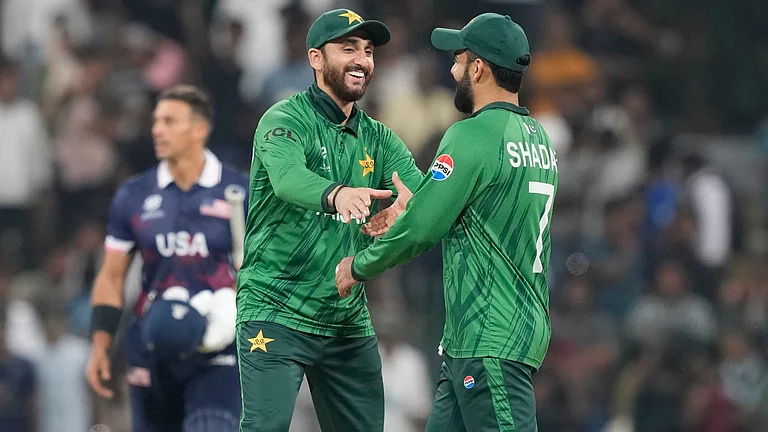A huge row erupted on Friday over Bharatiya Janata Party (BJP) MP Ramesh Bidhuri's communal slurs against MP Danish Ali in the Lok Sabha. The BJP MP used terms like "Muslim ugrawadi" (Muslim terrorist), "Bharwa" (pimp), and "katwa" (circumcised) to refer to Danish Ali. Several opposition leaders have condemned the use of such "unparliamentary language" by the MP.
Unparliamentary words are those which do not fit with the dignity of the house and are, therefore, expunged from the record of speeches by the chair. PTI reported that the remarks made by the BJP MP were expunged by speaker Om Birla.
Who decides what is 'unparliamentary'?
The secretariats of parliament release a list of such words that are considered 'unparliamentary'. These are usually words that have been used by parliamentarians in the past and were expunged from the records of Lok Sabha and Rajya Sabha back then.
Ahead of the Monsoon Session of the Parliament last year, a 50-page compilation of words deemed unfit for use in Parliament was released by the Lok Sabha secretariat. The opposition termed it as a "gag order".
Words like ‘jumlajeevi’, ‘baal buddhi’, ‘Covid spreader’, ‘abused’, ‘ashamed’, ‘betrayal’, ‘chamchagiri’, ‘cheated’, ‘Snoopgate’, ‘anarchist’, ‘Shakuni’, ‘corrupt’, ‘corruption’, ‘coward’, ‘criminal’, ‘dictatorial’, ‘taanashah’, ‘tanashahi’, ‘vinash purush’, ‘Khalistani’ among others were added to the list.
According to Rule 380 of Lok Sabha Rules, the Speaker has the power to expunge words which are defamatory, indecent, unparliamentary or undignified from the record of the debate. The Speaker has the discretion to decide what is unparliamentary but chair cannot exercise this power in such a way as to erode the freedom of speech conferred upon members by Article 105 of the constitution.
Rule 380 (“Expunction”) of the Rules of Procedure and Conduct of Business in Lok Sabha says: “If the Speaker is of opinion that words have been used in debate which are defamatory or indecent or unparliamentary or undignified, the Speaker may, while exercising discretion order that such words be expunged from the proceedings of the House.”
What action can be taken against the parliamentarian?
Article 105(2) of the Constitution states that “no Member of Parliament shall be liable to any proceedings in any court in respect of anything said or any vote given by him in Parliament or any committee thereof” -- meaning that the parliamentarian cannot be prosecuted for anything said in the House.
The only action that is taken is that the specific words or phrases are expunged from the records of the debate. In Bidhuri's case, Lok Sabha speaker Om Birla has taken note of the remarks and warned that "strict action" will be taken if such behaviour is "repeated" again, which sparked criticism as to why no action was being taken right now.
MP Danish Ali has written to the Lok Sabha speaker seeking action against Ramesh Bhiduri, calling the incident a “truly heartbreaking for me as a minority member..” He demanded that the matter be referred to a privileges panel and that further inquiry be conducted in the matter.
Meanwhile, chorus grows among opposition leaders who are demanding suspension of the BJP MP for his remarks. In the past, several MPs have been suspended for "unruly" behaviour. During the recently concluded Monsoon Session of Parliament, the Lok Sabha had suspended Adhir Ranjan Chowdhury, the leader of the Congress in the House, for “repeated misconduct”, pending an investigation by the Privileges Committee.


























